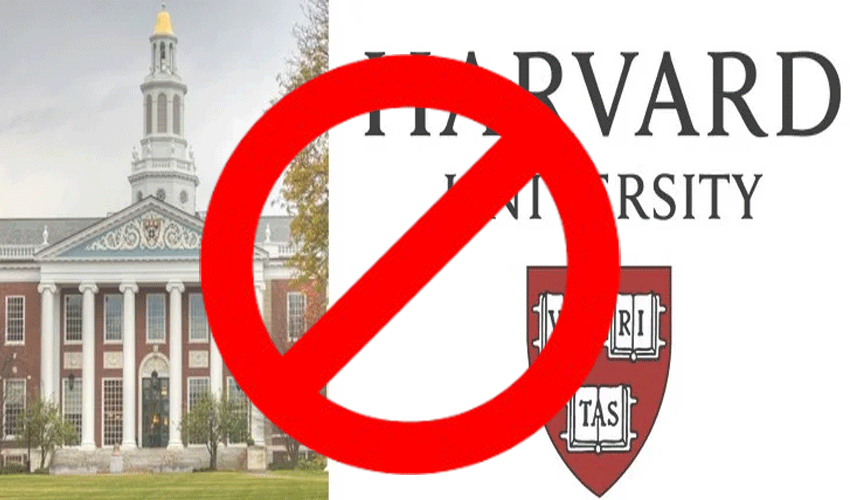Germany is now requiring all citizenship applicants to declare Israel's right to exist, as part of controversial new measures Berlin is taking to support Israel amid its brutal war on Gaza.
Berlin has recently reached an agreement to relax stringent citizenship regulations, thereby reducing the time required to obtain a passport and easing the acquisition of dual nationality.
"Anyone who shares our values and makes an effort can now get a German passport more quickly and no longer has to give up part of their identity by giving up their old nationality," Interior Minister Nancy Faeser said, according to the Israeli media.
"But we have also made it just as clear: anyone who does not share our values cannot get a German passport. We have drawn a crystal-clear red line here and made the law much stricter than before."
Germany has implemented measures to curb anti-Israel sentiments since the commencement of the conflict in Gaza last October, and even prior to that, it has labelled any criticism of the conflict as "antisemitic." This has raised questions about the status of free speech in the European nation.
The interior ministry previously made clear that the reformed citizenship law would include questions on Judaism and Jewish life in Germany, but the government confirmed on Tuesday that declaring Israel's right to exist was now also a requirement.
"New test questions have been added on the topics of antisemitism, the right of the state of Israel to exist and Jewish life in Germany," the ministry announced.
Germany's responsibility towards Judaism is also a fundamental part of the new citizenship test, given the Nazi murder of six million Jews during the Holocaust.
In March, the German weekly Spiegel reported that applicants would be asked about the year Israel was founded and Germany's supposed obligation to the country, as well as punishments for Holocaust denial, the name of the Jewish place of worship, and the membership requirements for Jewish sports clubs.
Of the six million Jews killed in the Holocaust, over one million were murdered at Germany's Auschwitz-Birkenau's notorious gas chambers, along with tens of thousands of others including homosexuals, Roma, and Soviet prisoners of war.
Many argue that the Holocaust does not justify Germany's unwavering support for Israel, as it conducts a war on Gaza that has seen tens of thousands of innocent children, women, and men killed.
Germany claims that the Gaza war has contributed to a sharp rise in hate crimes against Jews in the country.
Earlier this month, Germany designated the Palestinian-led Boycott, Divest, Sanction (BDS) movement as an "extremist group" and has continued to furnish Israel with arms despite the staggering death toll in Gaza.
The new rules will provide new rights to non-Germans who have been living in Germany for a while.
Below are the major changes:
- Applicants who wish to become naturalized citizens will no longer have to give up their previous nationality in order to become German.
- After five years of lawful residence in the country, people will be eligible to apply for German citizenship, instead of the previous eight.
- After three years, naturalization will be possible for something the German Interior Ministry calls "special achievements in integration." These achievements might include not only learning German, but also excelling in school or professional life, engaging in civic life, or running for political office.
- All children born in Germany to foreign parents will in future acquire German citizenship if at least one parent has been living in Germany legally for more than five years and has permanent residency. The controversial 'option regulation', which forced children of foreign parents to choose a nationality at the age of 18, is now abolished.
- The so-called guest worker generation -- mainly Turkish people who moved to West Germany in the 1960s to work -- will no longer have to take a naturalization test. It is imperative that individuals demonstrate proficiency in the oral language in order to obtain German citizenship. Many are expected to take advantage of this opportunity.
The aforementioned statement holds true for foreign workers who have relocated to the former East Germany in order to participate in a comparable program. - Though the new rules apply to everyone in principle, applicants for naturalization will still have to prove that they can earn their own living (though again, people from the guest worker generation can still apply regardless).
- A commitment to the democratic order set out in the German constitution has always been required of anyone applying for naturalization. This now explicitly excludes anyone found to have committed antisemitic, racist, or other inhumane acts. People who oppose equal rights for men and women or who live in polygamous marriages are also not eligible for a German passport.
- Germans newly naturalized are also required to commit to protecting Jewish life in the country. The list of questions in the naturalization test should be adjusted accordingly.



























